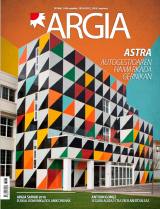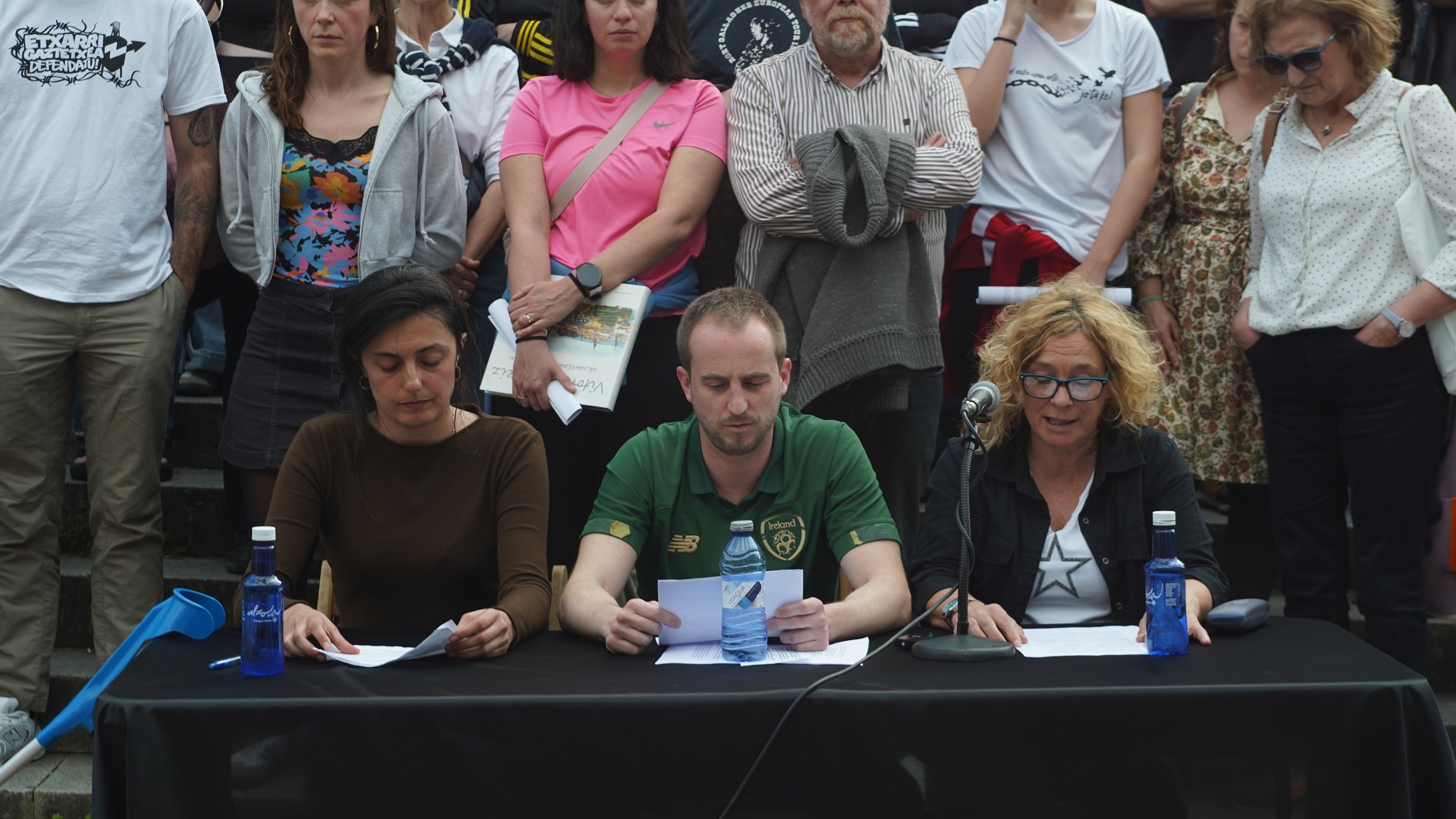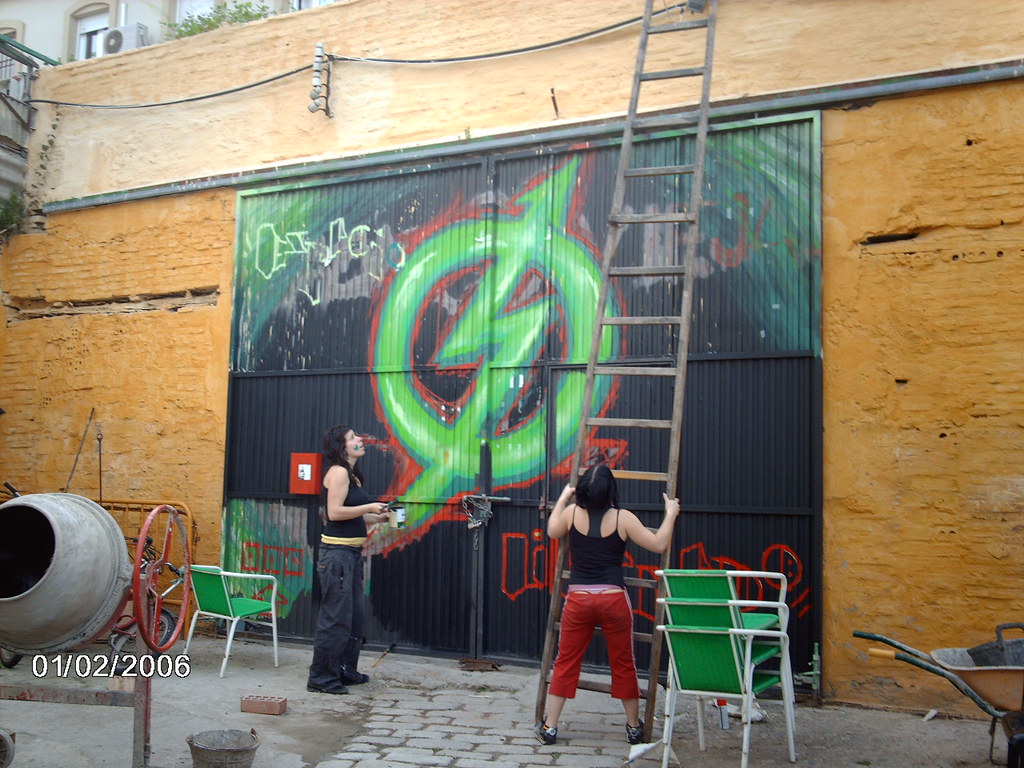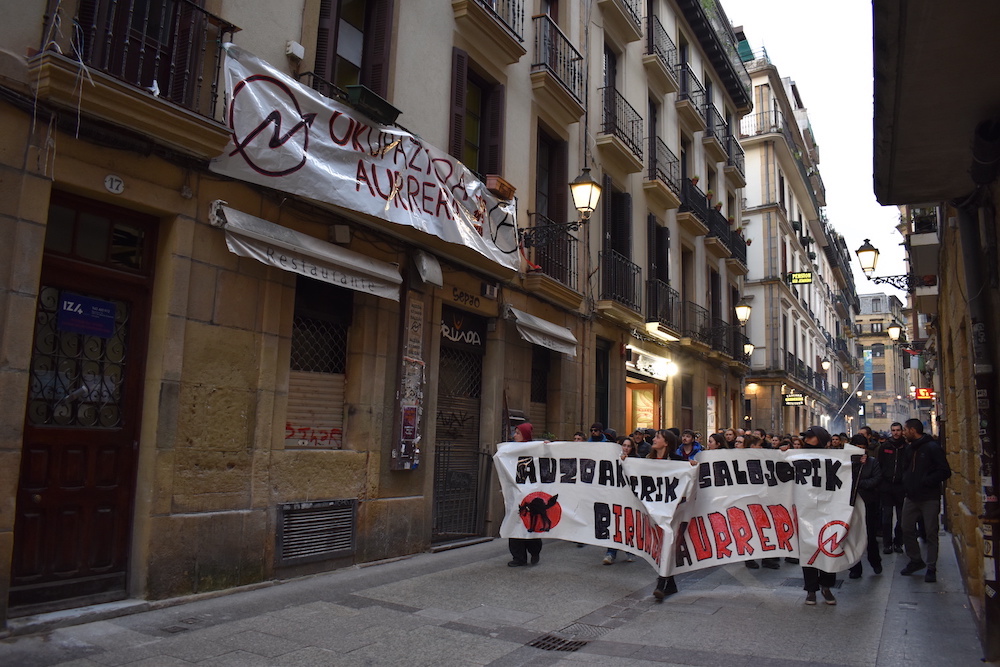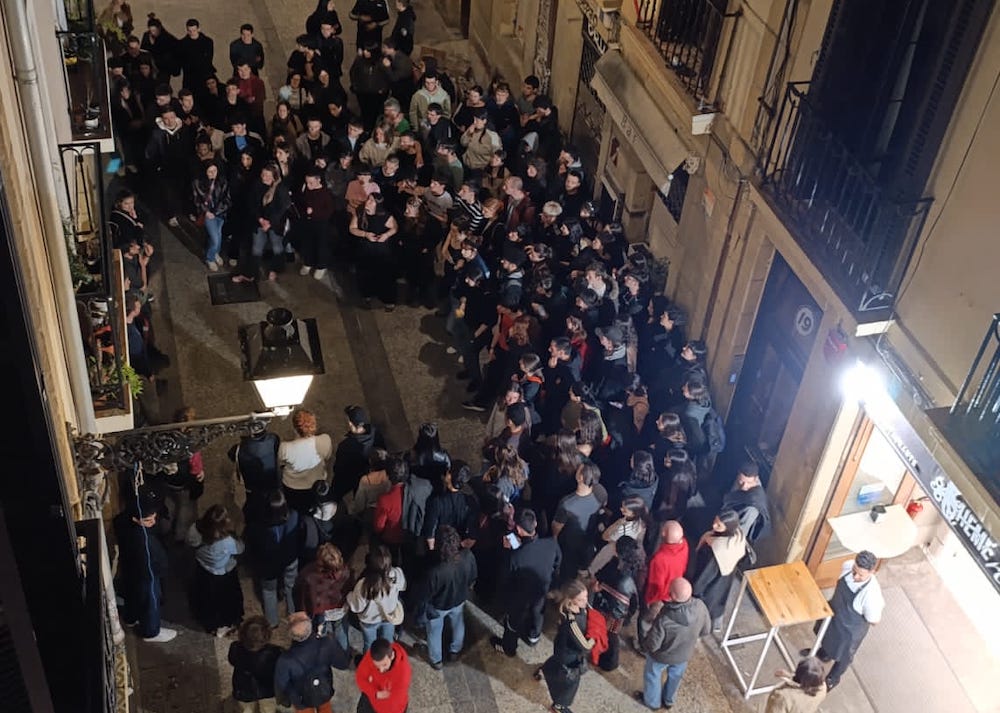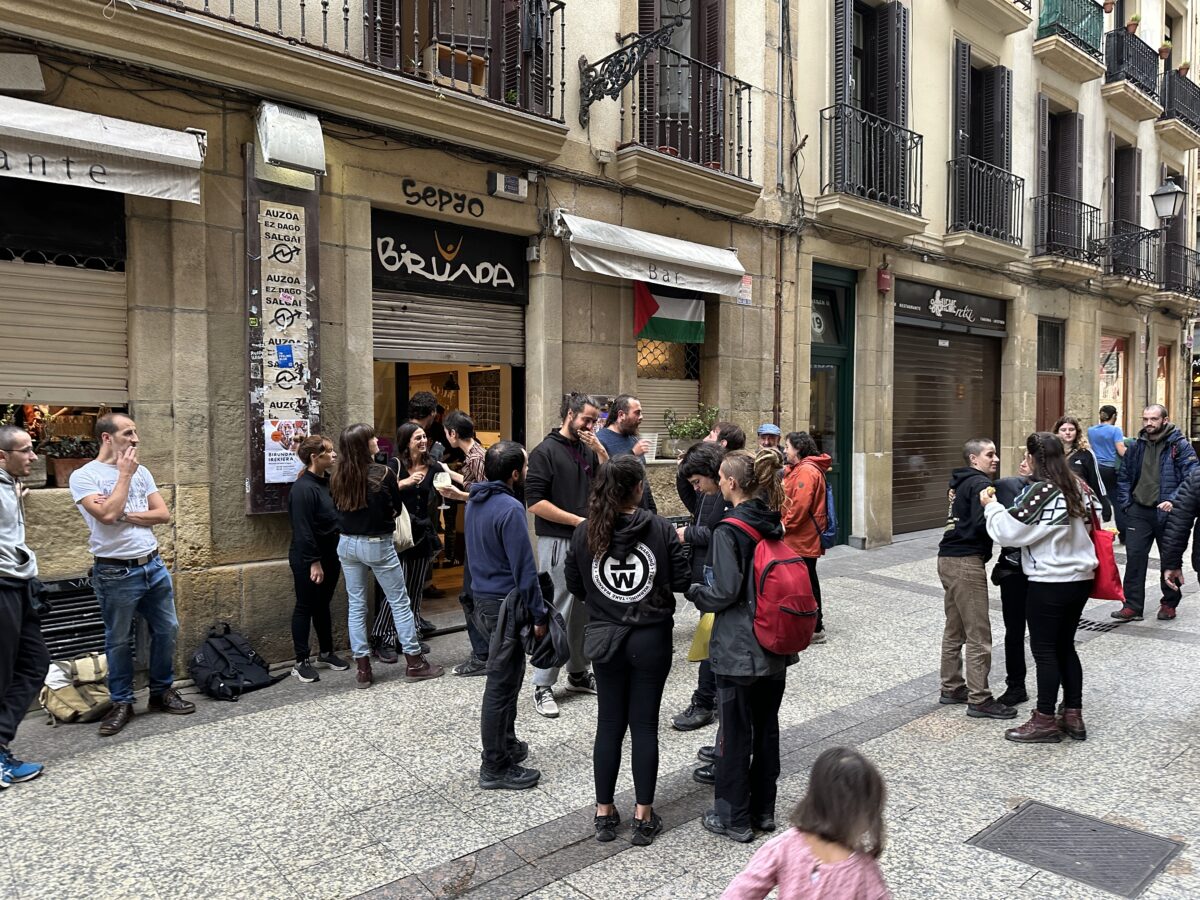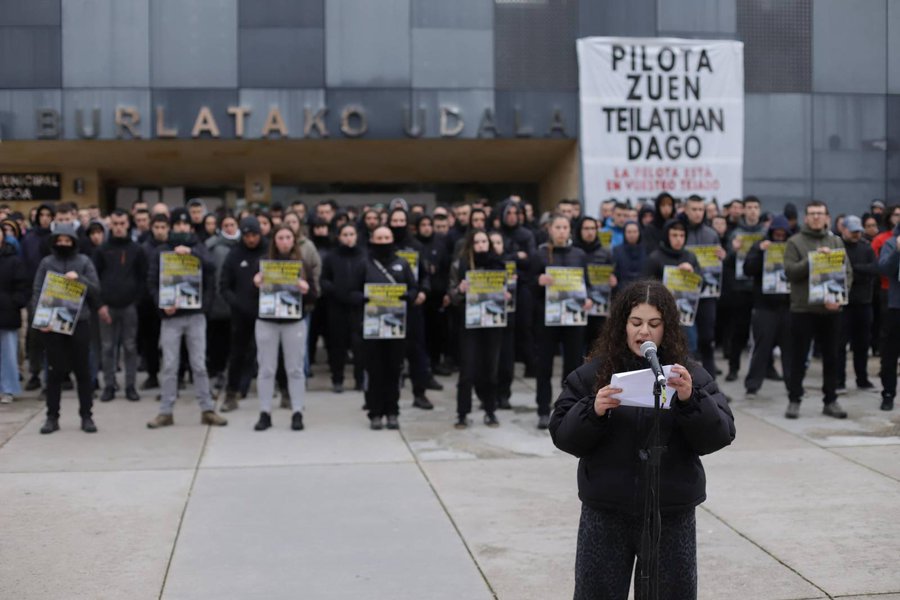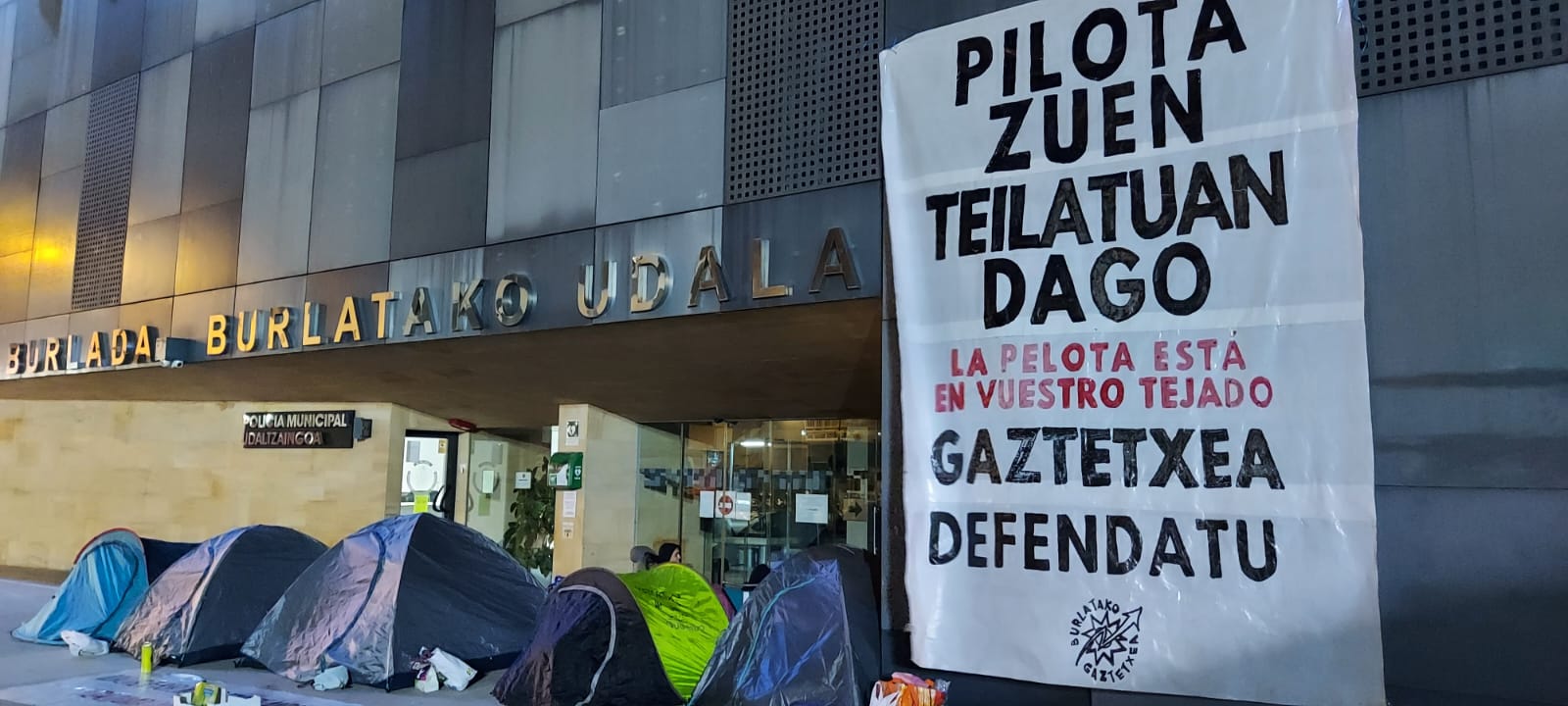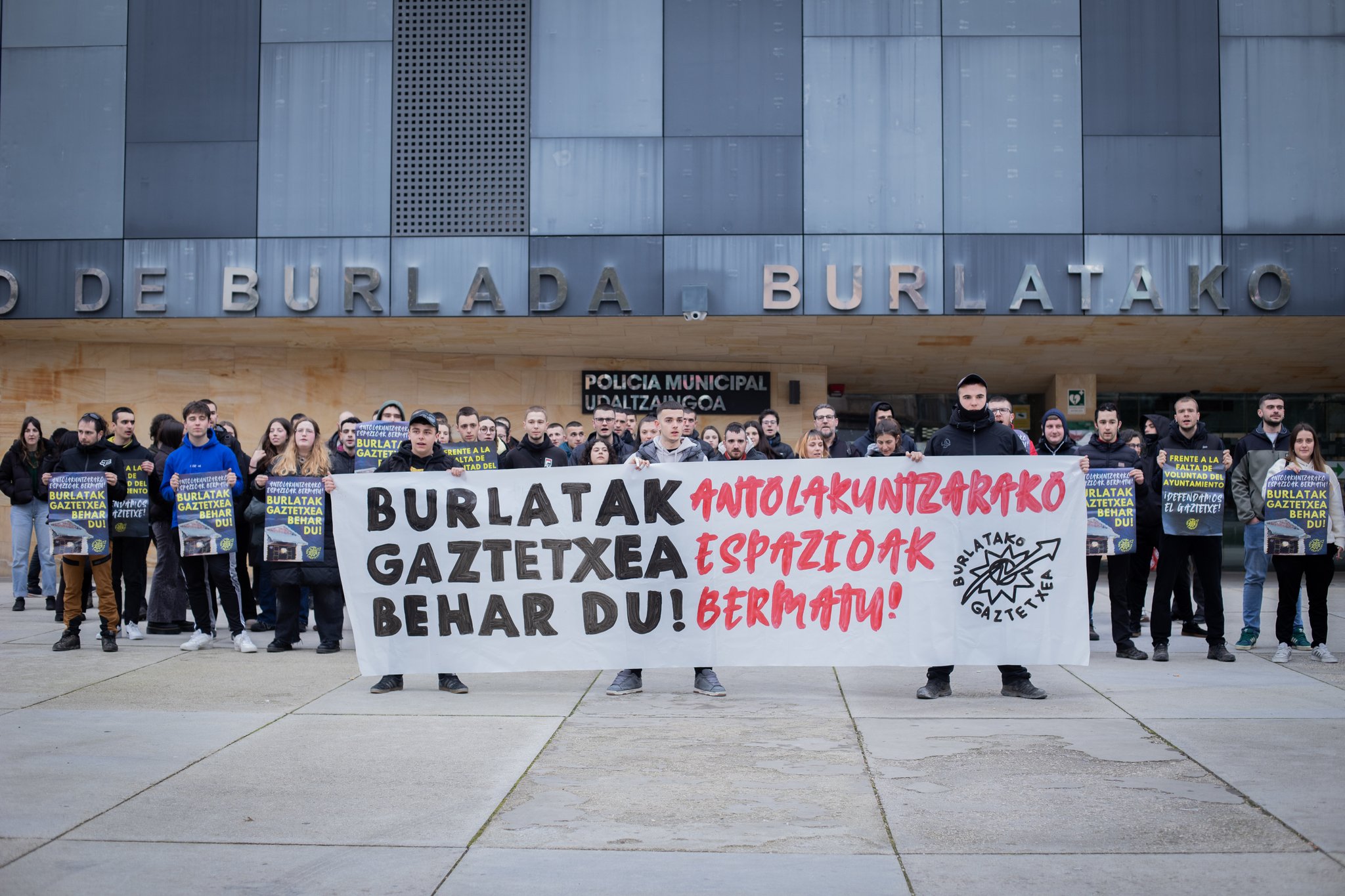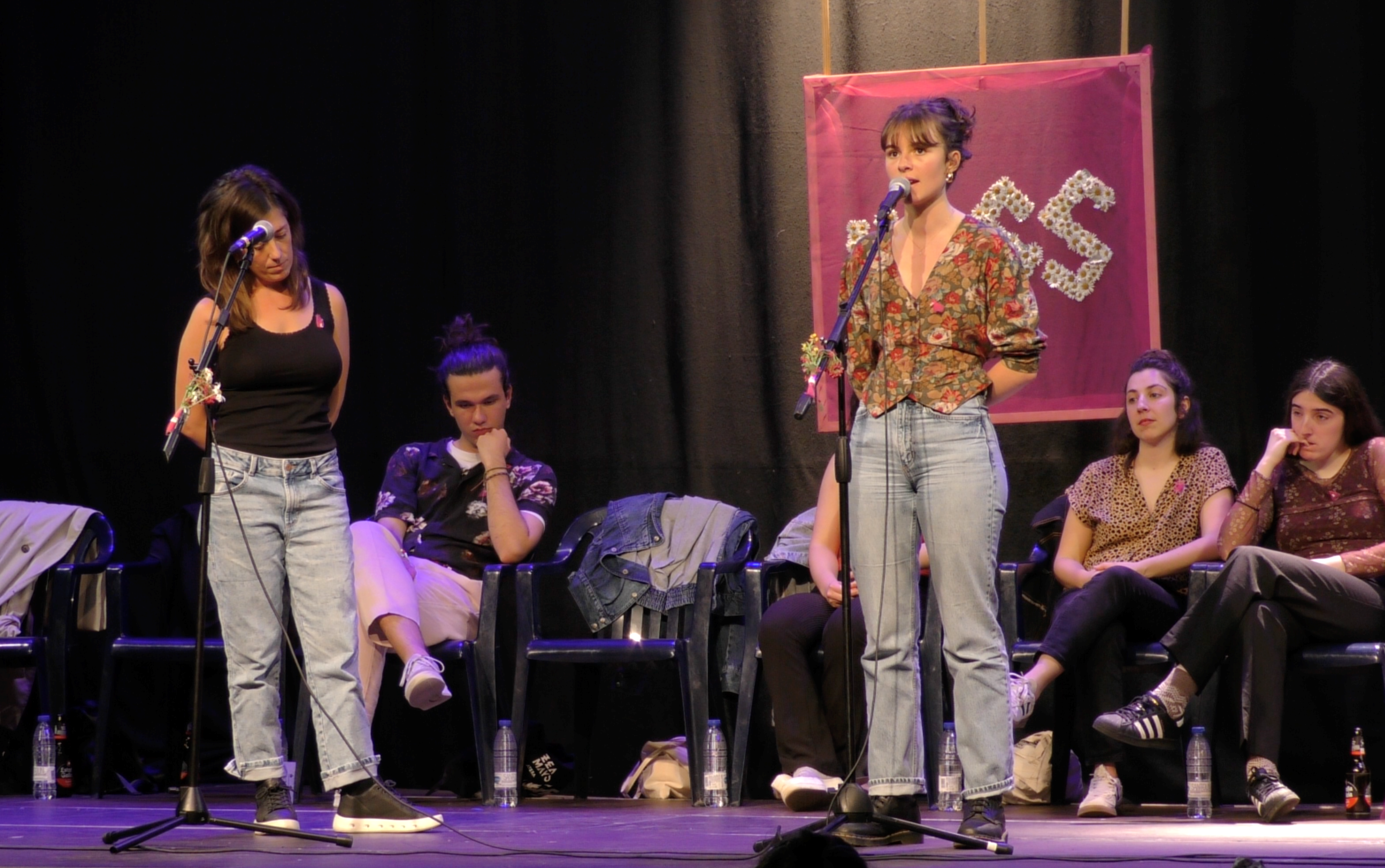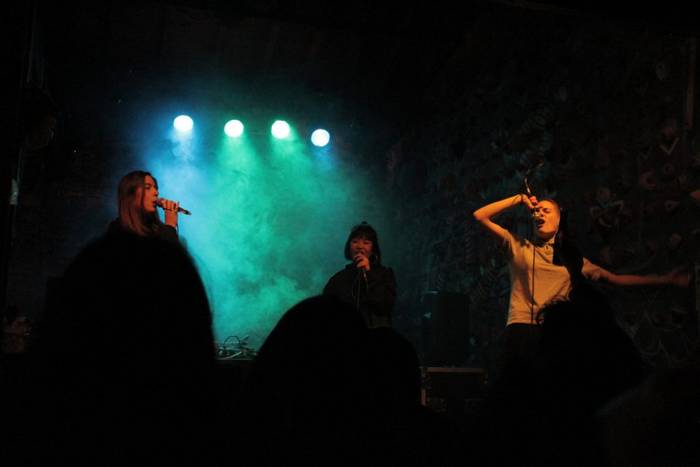Building their own roads that seemed impossible
- Many projects were launched in the late 1990s and early 2000s with the aim of promoting culture and tourism. Gernika, like City of Peace and Culture, also rose to the wave: new rooms, museums, sculptures of international artists… But it was a model of tourist and economic contagion that left the young people of the town relegated. Not being able to integrate into the institutional offer, they chose to follow their own path through self-management. What's more, they decided not to look back and live their own story. Give the people a new identity beyond the bombardment and the tree.

On 24 December, at 5:00 a.m., they began their journey in the Basque Country. Several young people from the town crossed the road and entered the Astra weapons factory, a symbol of another era of Gernika. When they tore down the door, which was blinded by the hammer, they found themselves before a great reto.el duty to condition a whole building, but above all to respond to the needs of those “exiled” Geranians. Ten years later, as the anniversary motto says, they occupied the impossible.
In the occupation was Oier Plaza Gartzia, later incorporated into the Leire López Ziluaga project. Both are currently participating in the Astra Coordinator, where they have addressed issues such as occupation, sovereignty or transmission, based on what was learned in the project. They believe that the fact that they have taken their own path in the face of lack of opportunities has empowered Gernikarras. “If someone realizes something is missing, he knows that that vacuum can cover him himself.” In ten years they have gone from nothing for young people to having opportunities, even if they are “not aware”.
Today Astra is fully integrated into Gernika’s everyday life. Each month it offers a broad cultural agenda, and is used by numerous associations and entities of the municipality to carry out activities, meetings or others. Not only that, but the opportunity that Astra has offered us has made new groups appear. However, they have stressed that Astra is not the only cause of a great result. “The youth have been the base, not Astra, and an example of this is the appearance of Iparragirre Rock Elkartea or Trinkete Antitxoko before occupying the building,” Plaza explained. He recognizes that it is also “paradoxical”: “Hotsandi’s cultural projects are not the way, but if it were not for those policies, the dynamics that have brought projects such as Astra would not arise.”
Busy building or something else?
The project is not usual nor the path taken for the achievement of the building. It moves away from the “stereotype” of the Gaztetxe, but what makes it special? The plaza says that at that moment the strategy for the playing field was developed, analyzed what could be done to win and was carried out: “Many times, by inertia, we repeat things even in occupations. In the case of Astra, instead of repeating it, we have created it.” In this dynamic, he highlighted the approach of the struggle for the recovery of Astra in parameters of public and private property.
“The building was in danger of disappearing because it had been acquired by a construction company and the only way to recover was to promote public use.” Once this had been achieved, each one raised their needs: the gaztetxe, the premises to rehearse, the premises to develop the culture as an association… “Analyzing all this, we started from scratch”.
The communication has also been representative of Astra, especially to achieve the support of the people and legitimize the project. "The most effective way to resist Astra was communication itself," Lopez explained in an interview at Euskadi Radio. In their words, they have always tried to make communication close. Giving more importance to the transmission through actions than through actions and making the citizens part of the project: “From the beginning Astra has made it clear that there is no ‘you’ and ‘us’ with citizenship. There is no identity of the members of Astra.”
However, this easily understandable speech has not prevented any doubts when it comes to naming the project. The culture factory is the most widely heard, especially in the media. The plaza says it’s not his favorite last name: “We look closer to any young man than to the model of a culture factory, but if someone likes it, go ahead, we don’t oppose him.” He attributed the bewilderment to the way the building was obtained, to the relationship with the institutions and to the absence of gaztetxe in the communiqués. “The richest thing Astra has is that everyone defines it as they want. More than a mistake, we see it as a wealth.”
They say he doesn’t need “surnames” for Gernika, but they admit that it’s hard to explain what Astra is for the outside. Astra is a space for the appropriation of citizens, according to their words, and that each one has to define it in their own way. In this sense, they do not believe that Astra has changed anything in the occupation movement: “It’s like it is because it has made its way, it’s neither better nor worse.” They say that it is a matter of perception and that there is a very rigid idea of the self-managed spaces that are generated through the occupation.
Lopez referred to the "sterotypes" that are spreading from abroad: “The occupation is related to the image of the Gaztetxe of the 1980s, and yet, I am convinced that there were also many gaztetxes at that time.” The plaza considers that there are different reasons to occupy and therefore it is not worth cataloguing: “Occupation is a subjective and complex process.” By differences, it is clear that each gaztetxe has its own lines: “Another of Astra’s bases is to respect what other self-managed spaces do.”
They are respectable, because all of them are designed to respond to the specific deficiencies or problems of each place. In this sense, they see the occupation more than an instrument, a claim that aims to show the deficiency or the problem at first, and then an instrument to seek an alternative: “Things can be asked, but if you occupy them, you get them.”
“Sovereignty is sacred”
Astra’s relationship with the institutions is another concern of the project, possibly due to the transfer agreement signed with the City Hall of Gernika. Many, seeing the renovated building, find it difficult to think that it is managed through occupation and self-management, but the Plaza has made it clear, “the agreement was the result of a strong negotiation”. He adds that, although not usual, there are examples of movements of punishment and occupation.
“The covenant is yes, but it is a sacred autonomy.” Indispensable condition according to the Plaza. The sovereignty that Astra has conquered in daily life is one of the keys to this. Still, López has stressed that, when negotiating the agreement, maintaining what was decided also meant gaining autonomy: "It gives the impression that the linking of an agreement implies a surrender to something, and that was not the case with Astra. It was clear from the beginning that our proposal was determined by citizenship with participation and direct democracy, so it could not be changed.”
Nor are they in favour of any kind of agreement with the institutions. “If in the assignment of a space there is no effort, work and process from the bottom up, it does not serve at all.” They don't see it useful for the city council to give them a gaztetxe. “At the most, the City Hall may have identified some public spaces for assignment in case of need. It is a mistake that there is a gaztetxe as a project within the cultural policies of the institutions”. You're clear that Astra wouldn't have worked if it wasn't a bottom-up project.
López has warned that there are many administrations that have closed their services because there are alternatives such as Astra’s. “The existence of this space should not mean a reduction in public services on the part of the institutions. In Gernika you have to have a house of culture.”
The challenge of transmission
Transmission is a headache of many movements, agents and institutions. The challenge of every project driven by people is inevitable for the Plaza: “When we talk about sustainability at Astra, we talk about personal and collective sustainability. To move forward, new people are needed, otherwise existing ones can be exhausted.” Lehendakari pointed out that direct participation in the occupation of the Basque Country has also led them to a higher degree of adherence. “The current challenge is to attract 15-year-olds to Astra.”
“You have to have transmission, but for everyone to continue to act in their own way.” Despite the fact that there are now new generations, there are shortcomings in management and membership. Therefore, they explained that in the assembly they decided that Astra would organize as soon as possible so that the management of the building would not steal all the strength of the individuals. For this energy to be devoted to the initiatives and struggles of each. That is what has provoked, according to the members of the coordinator, a phenomenon that no one expected in Astra. “We do not know many of those who circulate every day, and that is terrible for a self-managed space of a village of 16,000 inhabitants.”
Belonging, transmission, sovereignty… all these phenomena are pending study. After celebrating the anniversary on 24 December, the challenges and challenges ahead will be realised in February.
Kontuak publiko egitea erabaki zuten lehen unetik Astran. Gardentasunaren aldeko apustua, gauzak beste modu batean egin daitezkeela erakusteko aukeratzat hartu dute. Kontuen bidez ikusi zitekeen Astrak autofinantziazioaren bidez dependentzia ekidin zezakeela, eta Plazak azaldu duenez, horren bitartez soilik lortzen da burujabetza. “Edozein gatazka planteatzeko gai izateko, herri mugimenduentzat ezinbestekoa da burujabe izatea”.
Baina dependentzia ez da erakundeekiko bakarrik. Adibide ohiko, baina ez horren agerikoa jarri dute: “Astraren dependentzia, finantzatzeko jaiak antolatu beharra da. Barran jendeak kontsumitzea behar dugu ekonomikoki aurrera egiteko, eta horrek kontsumismoa bultza lezake”. Hori dela eta, saiatu arren, ez dute uste espazio liberaturik existitzen denik, “gizartearekin kontaktuan zauden heinean”. Lopezen ustez ona da, Astra bezalako espazioek mugak ikusten ere laguntzen dutelako. “Askotan espazio hauetaz hitz egitean gauza onak baino ez dira aipatzen, eta ondo dago noizbehinka gure mugak azaleraztea, sistemaren mugak direlako”.
Pasa den asteko "kaleratze ilegala" salatu dute hainbat herritarrek, ostiral arratsaldean.
Joan den asteko kaleratze "ilegala" salatzeko, manifestaziora deitu dute ostiral arratsalderako.
Ustez, lokalaren jabetza eskuratu dutenek bidali dituzte sarrailagileak sarraila aldatzera; Ertzaintzak babestuta aritu dira hori egiten. Birundak epaiketa bat irabazi du duela gutxi.
Protestak 24 ordu bete dituenean, suhiltzaileak bertaratu dira udaletxera eta kateak moztu dizkiete bi gazteei. Bi kateatuek gaua bertan igarotzea "udaletxearen hautua" izan dela adierazi du Gazte Asanbladak, eta udalaren ordezkariek "ekintza deslegitimatzeko eta bi... [+]
EH Bildu agintean dagoen udalak gaztetxearen etorkizuna ziurtatzeko aterabide bat adosteari "uko" egin diola salatu du Burlatako Gazte Asanbladak. Beste hainbat gaztek udaletxe kanpoan kanpatu dute, eta goizean zehar bertara hurbiltzeko dei egin dute.
Iruñerrian bat egin dute hainbat Gazte Asanbladak, Burlatako Gaztetxearen alde. Etxarriren desalojoa gelditzera deitzeko, bestalde, manifestazio bat antolatu dute Bilbon hilaren 28rako.
Asteburu honetan hasiko da Gaztetxeak Bertsotan egitasmo berria, Itsasun, eta zazpi kanporaketa izango ditu Euskal Herriko ondorengo hauetan: Hernanin, Mutrikun, Altsasun, Bilboko 7katun eta Gasteizen. Iragartzeko dago oraindik finala. Sariketa berezia izango da: 24 gaztez... [+]
Festa egiteko musika eta kontzertu eskaintza ez ezik, erakusketak, hitzaldiak, zine eta antzerki ikuskizunak eta zientoka ekintza kultural antolatu dituzte eragile ugarik Martxoaren 8aren bueltarako. Artikulu honetan, bilduma moduan, zokorrak gisa miatuko ditugu Euskal Herriko... [+]









